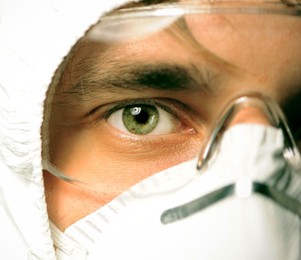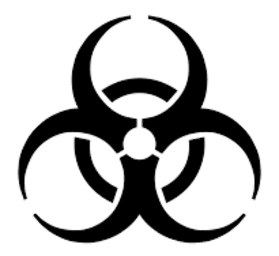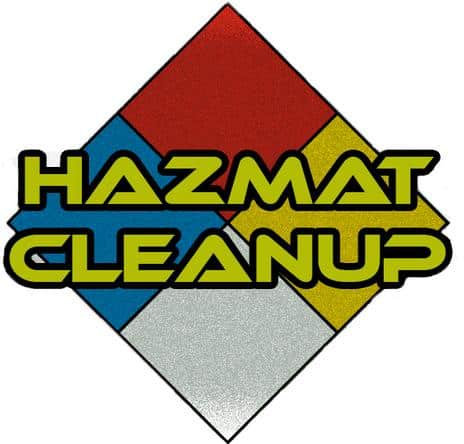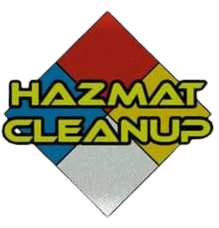


Professional Biohazard Cleanup Services in Hernando County and Spring Hill, FL
If you’re in Hernando County or Spring Hill, FL and need biohazard cleanup services, there are several techniques that professional services use to ensure safe and effective cleanup.
The first step in biohazard cleanup is to assess the situation and determine the extent of the contamination. This may involve testing for the presence of harmful bacteria and viruses, as well as identifying any other hazardous materials that may be present.
Once the assessment is complete, the cleanup team will use specialized equipment and techniques to safely remove the biohazardous materials from the affected area. This may include using personal protective equipment (PPE), such as gloves, masks, and full-body suits, to prevent exposure to harmful materials.
The cleanup team will also use specialized disinfectants and cleaning agents to thoroughly clean and sanitize the affected area. This is done to ensure that all traces of the biohazardous materials are removed and that the area is safe for use again.
In addition to the physical cleanup, a professional biohazard cleanup service will also properly dispose of all hazardous materials in accordance with local, state, and federal regulations. This includes transporting the materials to a licensed facility for disposal.
It’s important to note that biohazard cleanup should never be attempted by someone who is not trained and equipped to handle hazardous materials. Attempting to clean up biohazardous materials without the proper training and equipment can lead to serious health risks and may even be illegal.
If you’re in Hernando County or Spring Hill, FL and need biohazard cleanup services, contact a professional service that specializes in this type of work. They will have the expertise, equipment, and techniques needed to safely and effectively clean up the affected area and ensure that it’s safe for use again.
The Dangers Of Coming in Contact of Biohazards
One of the most well-known bloodborne pathogens is the human immunodeficiency virus (HIV), which can lead to acquired immune deficiency syndrome (AIDS). Other bloodborne pathogens include hepatitis B and C, syphilis, and malaria.
Contagious diseases include a wide range of illnesses, from the common cold to sexually transmitted infections (STIs) such as chlamydia, gonorrhea, and HIV. These diseases can be spread through contact with infected bodily fluids, as well as through coughing and sneezing.
The dangers of bloodborne pathogens and contagious diseases are particularly high for healthcare workers, first responders, and others who come into contact with bodily fluids on a regular basis. However, anyone can be at risk of exposure to these pathogens and diseases.
To protect yourself from bloodborne pathogens and contagious diseases, it’s important to take precautions when coming into contact with bodily fluids. This may include wearing personal protective equipment (PPE), such as gloves, masks, and gowns, when handling bodily fluids or performing medical procedures.
It’s also important to practice good hygiene habits, such as washing your hands regularly with soap and water, covering your mouth and nose when coughing or sneezing, and avoiding close contact with people who are sick.
If you believe you have been exposed to a bloodborne pathogen or contagious disease, it’s important to seek medical attention right away. Early diagnosis and treatment can help prevent serious complications and the spread of the disease to others.
In conclusion, the dangers of bloodborne pathogens and contagious diseases are real and it’s important to take steps to protect yourself and others. By practicing good hygiene habits, wearing PPE when necessary, and seeking medical attention when needed, you can help prevent the spread of these dangerous pathogens and diseases.
Basic Procedures While Cleaning up a Biohazard
The process of cleaning up biohazards at a residence typically involves the following steps:
Assessment: The first step is to assess the extent of the contamination and identify the type of biohazardous material present. This may involve testing for the presence of harmful bacteria and viruses, as well as identifying any other hazardous materials that may be present.
Personal Protective Equipment (PPE): Once the assessment is complete, the cleanup team will put on personal protective equipment (PPE), such as gloves, masks, and full-body suits, to prevent exposure to harmful materials.

Removal: The cleanup team will use specialized equipment and techniques to safely remove the biohazardous materials from the affected area. This may include using biohazard bags to collect the materials for proper disposal.
Cleaning and Disinfection: The cleanup team will use specialized disinfectants and cleaning agents to thoroughly clean and sanitize the affected area. This is done to ensure that all traces of the biohazardous materials are removed and that the area is safe for use again.
Disposal: All hazardous materials will be properly disposed of in accordance with local, state, and federal regulations. This includes transporting the materials to a licensed facility for disposal.
It’s important to note that cleaning up biohazards at a residence should never be attempted by someone who is not trained and equipped to handle hazardous materials. Attempting to clean up biohazardous materials without the proper training and equipment can lead to serious health risks and may even be illegal. It’s always best to contact a professional biohazard cleanup service to handle the job.
Insurance Covers The Cost of Cleanup and Restoration Services
Any property containing biological substances that could possibly pose a threat to the health of human beings or animals is considered a biohazard. Hazmat Cleanup specializes in decontamination, deep cleaning, and proper disposal of biohazardous waste for both residential and commercial properties in Hernando County. Our highly trained biohazard clean up technicians will disinfect the area using only non toxic, hospital grade chemicals. We will safely remove any blood, bodily fluids, or other infectious waste and legally transport it to an appropriate biomedical waste disposal facility where it is incinerated.
Most people don’t realize the risk involved when attempting to clean up a biohazard themselves. There are many contagious diseases that can survive outside of the body for several weeks even if it’s been cleaned without proper disinfectants. There is no need to risk possible exposure to communicable diseases, blood borne pathogens, infectious bacteria, etc. Hazmat Cleanup is licensed with the Department of Health and is trained to incorporate OSHA guidelines into the cleanup and sanitation of any biohazard or bodily fluids in Hernando County, FL.
List of cities and communities in Hernando County that we service:
Hernando County, Florida, United States
City
Census-Designated Places (CDPs)
Brookridge
High Point
Hill ‘n Dale
North Brooksville
South Brooksville
Spring Hill
Timber Pines
Weeki Wachee Gardens
Wiscon
Unincorporated Communities
Aripeka
Bayport
Garden Grove
Hernando Beach
Istachatta
Lake Lindsey
Masaryktown
Nobleton
North Weeki Wachee
Pine Island
Ridge Manor
Spring Lake
Weeki Wachee
